Described as a cross between a traditional book club and a university course without exams, this popular program is in-person and online for the 2023-24 season! This registration option is for the full 24 lecture ONLINE subscriptions option.
A link will be sent to subscribers between 7:00 and 7:30 pm on the day of the lecture. The links to the lectures will be accessible from their launch date until August 31, 2024.
Other subscription options are available here: https://www.heliconianclub.org/lls2324.html

France, 1918. In the final days of the First World War, Pauline Deng runs away from her uncle's home in Paris to evade a marriage being arranged for her in Shanghai. To prevent the union, she needs the help of her cousin Theo, who is working in the French countryside as a translator for the Chinese Labour Corps.
In the town of Noyelles-sur-Mer, Camille Roussel is planning her escape from an abusive marriage and seeking to end a love affair that can no longer continue. Camille offers Pauline a room in her house, and the two women become friends. But before long, Pauline uncovers a perilous secret that Camille has been hiding from her. As their dangerous situation escalates, the two women are forced to make a terrible decision that will bind them together for the rest of their lives.
Set against the little-known history of the 140,000 Chinese workers who were brought to Europe as non-combatant labour during WWI, The Porcelain Moon is a tale of forbidden love, identity and belonging, and what we are willing to risk for freedom.
 A witty and wise narrative about thwarted ambition, unrealized dreams, the enduring bonds of female friendship, and love ’s capacity to surprise us at any age. The novel features the characters from His Whole Life, 2015.
A witty and wise narrative about thwarted ambition, unrealized dreams, the enduring bonds of female friendship, and love ’s capacity to surprise us at any age. The novel features the characters from His Whole Life, 2015.
In the winter of 2008, as snow falls without interruption, an actor in a Beckett play blanks on her lines. Fleeing the theatre, she beats a retreat into her past and arrives at Snow Road Station, a barely discernible dot on the map of Ontario.
The actor is Lulu Blake, in her sixties now, a sexy, seemingly unfooled woman well-versed in taking risks. Out of work, humiliated, she enters the last act of her life wondering what she can make of her diminished self. In Snow Road Station she decides she is through with drama, but drama, it turns out, isn ’t through with her. She thinks she wants peace. It turns out she wants more.
Looming in the background is that autumn ’s global financial meltdown, while in the foreground family and friends animate a round of weddings, sap harvests, love affairs, and personal turmoil. At the centre of it all is the lifelong friendship between Lulu and Nan. As the two women contemplate growing old, they surrender certain hard-held dreams and confront the limits of the choices they ’ve made and the messy feelings that kept them apart for decades.
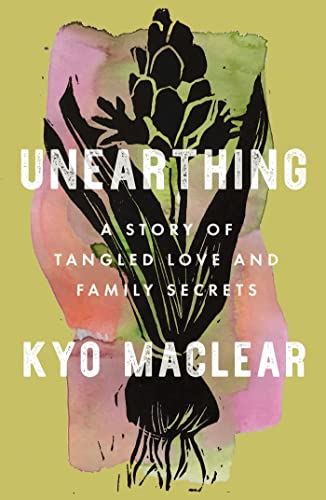 An unforgettable memoir about a family secret revealed by a DNA test, the lessons learned in its aftermath, and the indelible power of love.
An unforgettable memoir about a family secret revealed by a DNA test, the lessons learned in its aftermath, and the indelible power of love.
Three months after Kyo Maclear ’s father dies in December 2018, she gets the results of a DNA test showing that she and the father who raised her are not biologically related. Suddenly, Maclear becomes a detective in her own life, unravelling a family mystery piece by piece, and assembling the story of her biological father. Along the way, larger questions arise: what exactly is kinship? And what does it mean to be a family?
Thoughtful in its reflections on race and lineage, unflinching in its insights on grief and loyalty, Unearthing is a captivating and propulsive story of inheritance that goes beyond heredity.
What gets planted, and what gets buried? What role does storytelling play in unearthing the past and making sense of a life? Can the humble act of tending a garden provide common ground for an inquisitive daughter and her complicated mother? As it seeks to answer these questions, Unearthing bursts with the very love it seeks to understand.
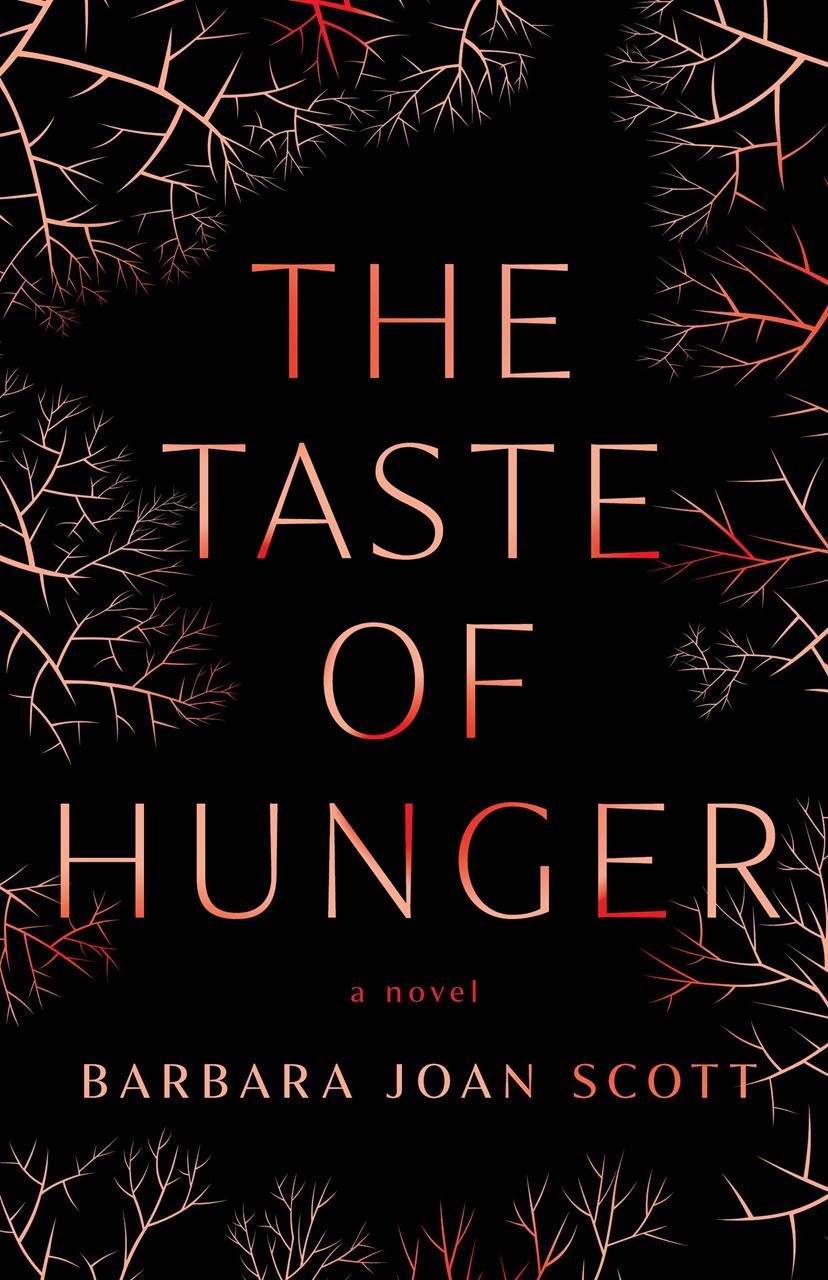
A family saga about Ukrainian immigrants in the early 20th century, the power of desire, Baba Yaga fairytales, and a moment that changes everything.
In Saskatchewan in the late 1920s, a fifteen-year-old Ukrainian immigrant named Olena is forced into marriage with Taras, a man twice her age, who wants her even though she has refused him. Stuck in a hardscrabble life and with a husband she despises, starved for a life of her own choosing, at every turn Olena rebels against her husband and her fate. As Olena and Taras drag everyone around them into the maelstrom that is their marriage, they set off a chain of turbulent events whose aftershocks reverberate through generations.
In her novel The Taste of Hunger, Barbara Joan Scott masterfully explores the pull of family, the fallout of thwarted desire, and the power of redemption and forgiveness.
OCTOBER 24 – Karin Wells: More Than a Footnote. Canadian Women You Should Know.
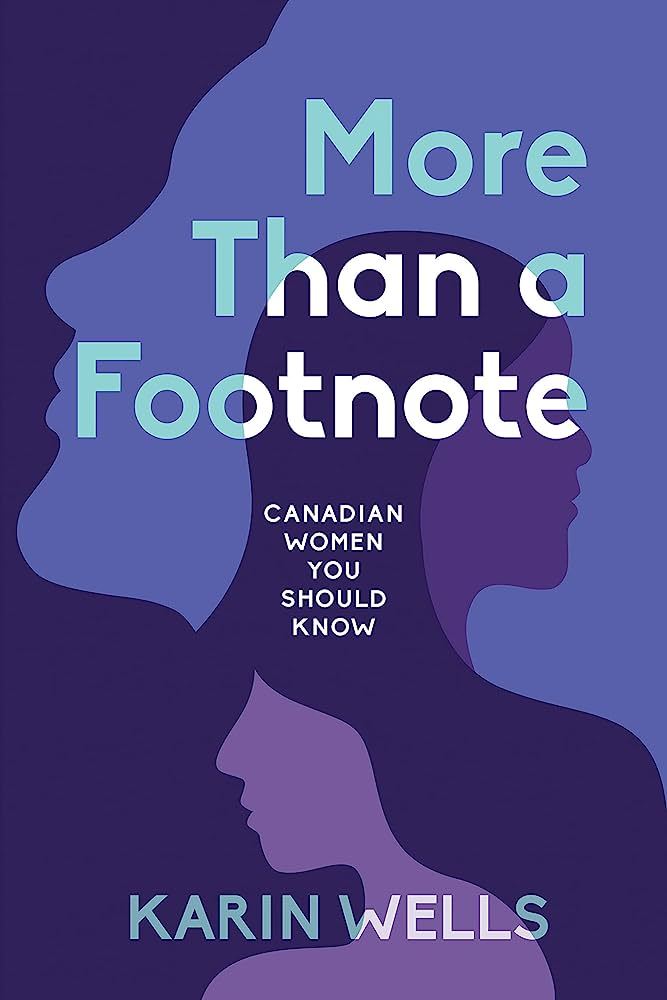
There are women throughout Canada's history who when faced with a locked door, have looked for a key — or a battering ram. Award-winning writer Karin Wells tells the stories of women like the fierce and iconoclastic Mina Benson Hubbard, who finished the mission to map northern Labrador that had killed her explorer husband, and Vera Peters, MD, who revolutionized treatments for Hodgkins lymphoma and breast cancer.
Or the painter Paraskeva Clark, child of the Bolshevik Revolution, who rattled staid Toronto when she took Norman Bethune as a lover and spoke out for art as a tool of social change. And have you heard of Charlotte Small, a Métis woman who canoed and trekked 42,000 km — more than three times further than the American explorers Lewis and Clark — and had five babies along the way?
Some were outrageous, some were unassuming, most were not polite, but they all ignored the voices that said women could not paddle a canoe, program a computer, understand the universe, or cure a disease. They lived big lives—often at great cost — and they made a difference. (From Second Story Press)
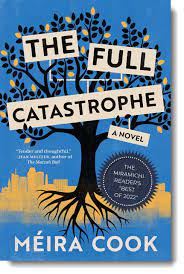 A compassionate and funny novel about defining yourself, the communities that support us, and the journeys that secrets propel.
A compassionate and funny novel about defining yourself, the communities that support us, and the journeys that secrets propel.
Charlie Minkoff, a thirteen-year-old boy born with intersex traits, would be happy to be left alone. Living with his artist mother in a derelict loft in downtown Winnipeg, perpetually wondering about the father who abandoned him, and tormented in school because of his differences, Charlie navigates the assorted catastrophes of his life. He ’s helped along by the love of his beloved grandfather, Oscar, and the makeshift family who surround his mother ’s best friend; a couple of elderly shut-in neighbours; a mysterious girl in his class who has secrets of her own; and his desperately needy and perpetually hungry dog, Gellman
When a school project leads him to discover that Oscar never had a bar mitzvah, Charlie decides to right the historical wrong and arrange a belated ceremony. But this quest will be more than he bargained for, and meanwhile everyone from his doctor to his Ancestry Studies teacher keeps insisting that Charlie needs to learn to tell his own story.
Margaret Laurence Award winner Méira Cook ’s The Full Catastrophe is a story of psychological complexity, tenderness, and humour.
NOVEMBER 16– Christopher Cameron: Thornside Stories
cameron.jpg) Welcome to Thorneside. If you ’re a new arrival, the place may look like just another sleepy town nestled among the rolling hills of Lindisfarne County. But spend some time here, meet the people, and you ’ll soon see much more.
Welcome to Thorneside. If you ’re a new arrival, the place may look like just another sleepy town nestled among the rolling hills of Lindisfarne County. But spend some time here, meet the people, and you ’ll soon see much more.
Meet a church choirmaster who has been scanning obituaries for over twenty years, searching for one particular name. Meet a former big-city paramedic who now drives a hearse for the local funeral home so he doesn ’t have to worry about killing his passengers. Meet a mysterious stranger who shows up in town and charms everyone he meets. Nearly everyone.
And meet four unforgettable women. The secrets of their intertwined lives could wake the dead — or in one case, have the opposite effect.
NOVEMBER 21 - Shelly Sanders: Daughters of the Occupation
%20sanders.jpg) Based on a true story, this powerful novel is set in Latvia ’s capital during the horrific Rumbula massacre when 30,000 Jews were slaughtered over two days in 1941
Based on a true story, this powerful novel is set in Latvia ’s capital during the horrific Rumbula massacre when 30,000 Jews were slaughtered over two days in 1941
When Miriam and her family are rounded up and forced to live in the Jewish ghetto in Riga, Miriam chooses to give up her children to the care of a Gentile friend who will hide them. A few weeks later, Miriam, along with thousands of other Jews, is marched to the execution pits in the Rumbula forest. Incredibly, she manages to escape the carnage when night falls. Through a series of dramatic events, she finds sanctuary in the countryside, managing to hide for three years and survive the war. Consumed by guilt, she is finally reunited with her daughter. But she has lost her son.
Thirty-five years later, Miriam ’s granddaughter, Sarah, is living in Chicago with her family. Seeking to understand her maternal family history, Sarah tries desperately to ferret out Miriam ’s secret. Miriam does not want to revisit the past, but through persistence Sarah eventually finds out enough to impel her to travel to Riga to search for her uncle. But it is the height of the Cold War and Riga is under Soviet control. Now Sarah ’s quest for the truth may threaten her freedom when she comes face to face with the KGB.
December 14 – Zoe Whittall: The Fake
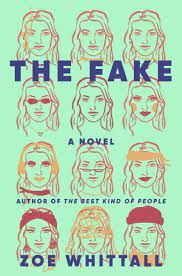 A con artist can make you feel like the luckiest person on earth just to be in their presence. But when the jig is up, they ghost, and you're left wondering if you ever mattered
A con artist can make you feel like the luckiest person on earth just to be in their presence. But when the jig is up, they ghost, and you're left wondering if you ever mattered
After the death of her wife, Shelby feels more alone than ever—until she meets Cammie, a charismatic woman unafraid of what anyone else thinks and whose own history of trauma draws Shelby close. When Cammie is fired from her job and admits she is in treatment for kidney cancer, Shelby devotes all her time to helping Cammie thrive. But Shelby's intuition tells her there are things about Cammie's past that don't add up. Could the realest thing about Cammie be that she's actually a scammer?
Gibson is almost forty, fresh from a divorce and deeply depressed. Then he meets and falls in love with Cammie. Suddenly, he's having the best sex of his life with a woman so attractive he's stunned she even glanced his way, and for the first time ever he feels truly known. This is the kind of desire and passion that musicians have been writing love songs about for centuries. But Gibson's friends are wary of Cammie, and eventually he too has to admit that Cammie's dramatic life can feel a bit over the top.
When Shelby and Gibson find out Cammie is a pathological liar, they struggle to understand what they really want from her—sometimes they want to help her heal from whatever causes her to invent reality, and sometimes they want revenge. But the biggest question of all is: how honest can Shelby and Gibson be about their own characters?
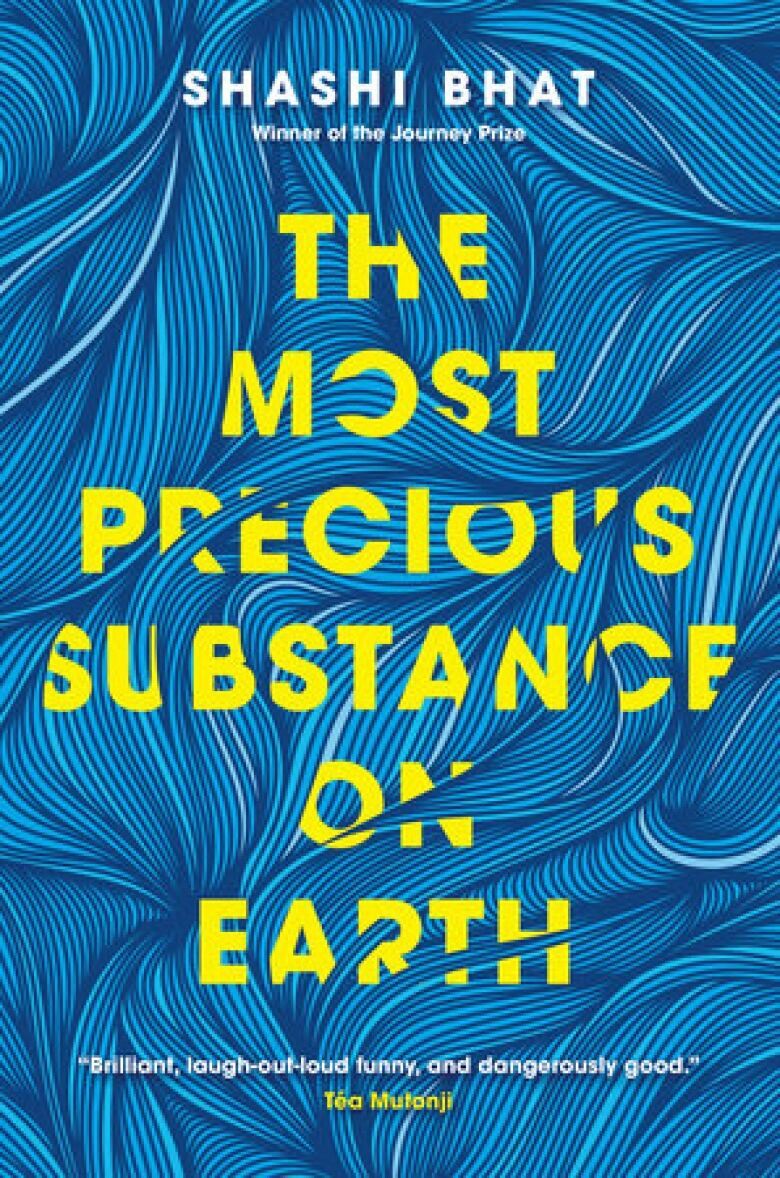 Bright, hilarious, and sensitive fourteen-year-old Nina doesn ’t say anything when her best friend begins to pull away, or when her crush on her English teacher intensifies. She doesn ’t say anything when her mother tries to match her up with local Halifax Indian boys unfamiliar with her Saved by the Bell references, or when her worried father starts reciting Hindu prayers outside her bedroom door. ( “How can your dad be happy when his only daughter is unsettled?”)
Bright, hilarious, and sensitive fourteen-year-old Nina doesn ’t say anything when her best friend begins to pull away, or when her crush on her English teacher intensifies. She doesn ’t say anything when her mother tries to match her up with local Halifax Indian boys unfamiliar with her Saved by the Bell references, or when her worried father starts reciting Hindu prayers outside her bedroom door. ( “How can your dad be happy when his only daughter is unsettled?”)
And she won ’t speak of the incident in high school that changes the course of her life.
The Most Precious Substance on Earth tells stories of Nina ’s life from the nineties to present day, when she returns to the classroom as a high school teacher with a haunting secret. And whether she ’s pushing herself to deliver speeches at Toastmasters meetings, struggling through her MFA program, enduring the indignities of online dating, or wrestling with how to best guide her students, she will discover that the past is never far behind her.
Darkly funny, deeply moving, unsettling, and at times even shocking, Shashi Bhat ’s irresistible novel-in-stories examines the fraught relationships between those who take and those who have something taken. The Most Precious Substance on Earth is a sharp-edged and devastating look at how women are conditioned to hide their trauma and suppress their fear, loneliness, and anger, and an unforgettable portrait of how silence can shape a life.
JANUARY 18– Saeed Teebi: Her First Palestinian
Teebi.jpg) Saeed Teebi's intense, engrossing stories plunge into the lives of characters grappling with their experiences as Palestinian immigrants to Canada. A doctor teaches his girlfriend about his country, only for her to fall into a consuming obsession with the Middle East conflict. A math professor risks his family's destruction by slandering the king of a despotic, oil-rich country.
Saeed Teebi's intense, engrossing stories plunge into the lives of characters grappling with their experiences as Palestinian immigrants to Canada. A doctor teaches his girlfriend about his country, only for her to fall into a consuming obsession with the Middle East conflict. A math professor risks his family's destruction by slandering the king of a despotic, oil-rich country.
A university student invents an imaginary girlfriend to fit in with his callous, womanizing roommates. A lawyer takes on the impossible mission of becoming a body smuggler. A lonely widower travels to Russia in search of a movie starlet he met in his youth in historical Jaffa. A refugee who escaped violent circumstances rebels against the kindness of his sponsor.
These taut and compelling stories engage the immigrant experience and reflect the Palestinian diaspora with grace and insight.
Barbara.jpg) Set in the mountains of southern Appalachia, Demon Copperhead is the story of a boy born to a teenaged single mother in a single-wide trailer, with no assets beyond his dead father ’s good looks and copper-colored hair, a caustic wit, and a fierce talent for survival. Relayed in his own unsparing voice, Demon braves the modern perils of foster care, child labor, derelict schools, athletic success, addiction, disastrous loves, and crushing losses. Through all of it, he reckons with his own invisibility in a popular culture where even the superheroes have abandoned rural people in favour of cities.
Set in the mountains of southern Appalachia, Demon Copperhead is the story of a boy born to a teenaged single mother in a single-wide trailer, with no assets beyond his dead father ’s good looks and copper-colored hair, a caustic wit, and a fierce talent for survival. Relayed in his own unsparing voice, Demon braves the modern perils of foster care, child labor, derelict schools, athletic success, addiction, disastrous loves, and crushing losses. Through all of it, he reckons with his own invisibility in a popular culture where even the superheroes have abandoned rural people in favour of cities.
Many generations ago, Charles Dickens wrote David Copperfield from his experience as a survivor of institutional poverty and its damages to children in his society. Those problems have yet to be solved in ours. Dickens is not a prerequisite for readers of this novel, but he provided its inspiration. In transposing a Victorian epic novel to the contemporary American South, Barbara Kingsolver enlists Dickens ’ anger and compassion, and above all, his faith in the transformative powers of a good story. Demon Copperhead speaks for a new generation of lost boys, and all those born into beautiful, cursed places they can ’t imagine leaving behind.
February 14 – Tsering Yangzom Lama: We Measure The Earth With Our Bodies
 In the wake of China's invasion of Tibet throughout the 1950s, Lhamo and her younger sister, Tenkyi, arrive at a refugee camp in Nepal. They survived the dangerous journey across the Himalayas, but their parents did not. As Lhamo-haunted by the loss of her homeland and her mother, a village oracle-tries to rebuild a life amid a shattered community, hope arrives in the form of a young man named Samphel and his uncle, who brings with him the ancient statue of the Nameless Saint-a relic known to vanish and reappear in times of need.
In the wake of China's invasion of Tibet throughout the 1950s, Lhamo and her younger sister, Tenkyi, arrive at a refugee camp in Nepal. They survived the dangerous journey across the Himalayas, but their parents did not. As Lhamo-haunted by the loss of her homeland and her mother, a village oracle-tries to rebuild a life amid a shattered community, hope arrives in the form of a young man named Samphel and his uncle, who brings with him the ancient statue of the Nameless Saint-a relic known to vanish and reappear in times of need.
Decades later, the sisters are separated, and Tenkyi is living with Lhamo's daughter, Dolma, in Toronto. While Tenkyi works as a cleaner and struggles with traumatic memories, Dolma vies for a place as a scholar of Tibetan Studies. But when Dolma comes across the Nameless Saint in a collector's vault, she must decide what she is willing to do for her community, even if it means risking her dreams.
Breathtaking in its scope and powerful in its intimacy, We Measure the Earth with Our Bodies is a gorgeously written meditation on colonization, displacement, and the lengths we'll go to remain connected to our families and ancestral lands. Told through the lives of four people over fifty years, this novel provides a nuanced, moving portrait of the little-known world of Tibetan exiles.
FEBRUARY 22 - Ann Shin: The Last Exiles
Shin.jpg) An unforgettable saga inspired by true events, The Last Exiles is a searing portrait of a young couple in North Korea and their fight for love and freedom.
An unforgettable saga inspired by true events, The Last Exiles is a searing portrait of a young couple in North Korea and their fight for love and freedom.
Jin and Suja met and fell in love while studying at university in Pyongyang. She was a young journalist from a prominent family, while he was from a small village of little means. Outside the school, North Korea has fallen under great political upheaval, plunged into chaos and famine. When Jin returns home to find his family starving, their food rations all but gone, he makes a rash decision that will haunt him for the rest of his life.
Meanwhile, miles away, Suja has begun to feel the tenuousness of her privilege when she learns that Jin has disappeared. Risking everything, and defying her family, Suja sets out to find him, embarking on a dangerous journey that leads her into a dark criminal underbelly and will test their love and will to survive.
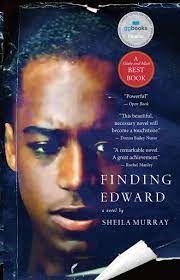 Cyril Rowntree migrates to Toronto from Jamaica in 2012. Managing a precarious balance of work and university he begins to navigate his way through the implications of being racialized in his challenging new land.
Cyril Rowntree migrates to Toronto from Jamaica in 2012. Managing a precarious balance of work and university he begins to navigate his way through the implications of being racialized in his challenging new land.
A chance encounter with a panhandler named Patricia leads Cyril to a suitcase full of photographs and letters dating back to the early 1920s. Cyril is drawn into the letters and their story of a white mother ’s struggle with the need to give up her mixed race baby, Edward. Abandoned by his own white father as a small child, Cyril ’s keen intuition triggers a strong connection and he begins to look for the rest of Edward ’s story.
As he searches, Cyril unearths fragments of Edward ’s itinerant life as he crisscrossed the country. Along the way, he discovers hidden pieces of Canada ’s Black history and gains the confidence to take on his new world.
March 13 - Joseph Kakwinokanasum: My Indian Summer
.jpg) Three kohkums, a man named Crow, two best friends, and a drug dealer . . . twelve-year-old Hunter may be getting out of Red Rock sooner than he hoped.
Three kohkums, a man named Crow, two best friends, and a drug dealer . . . twelve-year-old Hunter may be getting out of Red Rock sooner than he hoped.
For Hunter Frank, the summer of ’ 79 begins with his mother returning home only to collect the last two months ’ welfare cheques, leaving her three “fucking half-breeds” to fend for themselves. When his older sister escapes their northern BC town and his brother goes to fight forest fires, Hunter is on his own, with occasional care coming from a trio of elders—his kohkums—and companionship from his two best friends.
It ’s been a good summer for the young entrepreneur, but the cash in the purple Crown Royal bag hidden in his mattress still isn ’t enough to fund his escape from his monstrous mother and the town of Red Rock. As the Labour Day weekend arrives, so does a new friend with old wisdom and a business opportunity that might be just what a boy at the crossroads needs.
My Indian Summer is the story of a journey to understanding that some villains are also victims, and that while reconciliation may not be possible, survival is.
MARCH 21 - C.S. Richardson: All the Colour in the World
.jpg) The story of the restorative power of art in one man ’s life, set against the sweep of the twentieth century—from Toronto in the ’ 20s and ’ 30s, through the killing fields of World War II, to 1960s Sicily.
The story of the restorative power of art in one man ’s life, set against the sweep of the twentieth century—from Toronto in the ’ 20s and ’ 30s, through the killing fields of World War II, to 1960s Sicily.
Henry, born 1916, thin-as-sticks, nearsighted, is an obsessive doodler—copying illustrations from his Boy ’s Own magazines. Left in the care of a nurturing, Shakespeare-quoting grandmother, eight-year-old Henry receives as a gift his first set of colouring pencils (and a pocket knife for the sharpening). As he commits these colours to memory—cadmium yellow; burnt ochre; deep scarlet red—a passion for art, colour, and the stories of the great artists takes hold, and becomes Henry ’s unique way of seeing the world. It is a passion that will both haunt and sustain him on his journey through the century: from boyhood dreams on a summer beach to the hothouse of art academia and a love cut short by tragedy; from the psychological wounds of war to the redemption of unexpected love.
Projected against a backdrop of iconic masterpieces—from the rich hues of the European masters to the technicolour magic of Hollywood—All the Colour in the World is Henry ’s story: part miscellany, part memory palace, exquisitely precise with the emotional sweep of a great modern romance.
.jpg) In an isolated outport on Newfoundland ’s northern coastline, Abe Strapp is about to marry the daughter of a rival merchant to cement his hold on the shore when the Widow Caines arrives to throw the wedding and Abe ’s plans into chaos.
In an isolated outport on Newfoundland ’s northern coastline, Abe Strapp is about to marry the daughter of a rival merchant to cement his hold on the shore when the Widow Caines arrives to throw the wedding and Abe ’s plans into chaos.
That ruthless act of sabotage is the opening salvo in a battle between the man and woman who own Mockbeggar ’s largest mercantile firms, each fighting for the scarce resources of the north Atlantic fishery, each seeking a measure of revenge on the person they despise most in the world. As their unshakeable animosity spirals further each year into vendettas and violence, the community is increasingly divided and even the innocents in Mockbeggar find themselves forced to take sides, with devastating consequences.
Through merciless seasons of uncertainty and want, through predatory storms and pandemics and marauding privateers, it is the human heart that reveals itself to be the most formidable and unpredictable adversary for each person drawn, inevitably and helplessly, into that endless feud.
Compulsively readable and uncompromising, The Adversary is a masterful evocation of a lost time, and a shadowed mirror to our modern politics of grievance and retribution.
April 10 – Darcy Tamayose: Ezra ’s Ghosts
.jpg) Award-winning author Darcy Tamayose returns with Ezra ’s Ghosts, a collection of fantastical stories linked by a complex mingling of language and culture, as well as a deep understanding of grief and what it makes of us. Within these pages a scholar writes home from the Ryukyu islands, not knowing that his hometown will soon face a deadly calamity of its own. Another seeker of truth is trapped in Ezra after her violent death, and must watch how her family—and her killer—alter in her absence.
Award-winning author Darcy Tamayose returns with Ezra ’s Ghosts, a collection of fantastical stories linked by a complex mingling of language and culture, as well as a deep understanding of grief and what it makes of us. Within these pages a scholar writes home from the Ryukyu islands, not knowing that his hometown will soon face a deadly calamity of its own. Another seeker of truth is trapped in Ezra after her violent death, and must watch how her family—and her killer—alter in her absence.
The oldest man in town, an immigrant who came to Canada to escape imperial hardships, sprouts wings, and a wounded journalist bears witness to his transformation. Finally, past and present collide as a researcher reflects on the recent skinwars that have completely altered the world ’s topography. Binding the stories together is an intersect of arrival and departure—in a quiet prairie town called Ezra.
April 18 - Charlotte Gray: Passionate Mothers, Powerful Sons
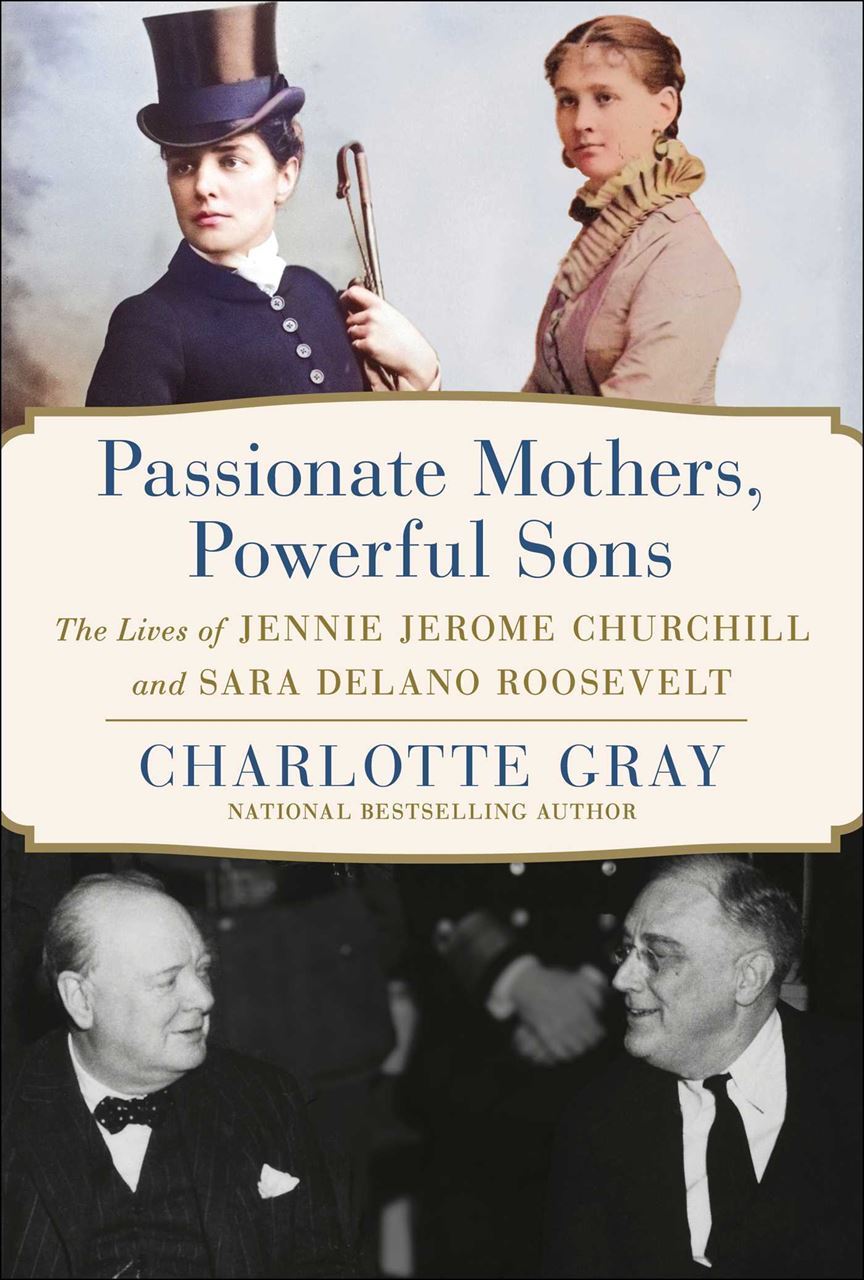 A captivating dual biography of two famous women whose sons would change the course of the 20th century—by award-winning historian Charlotte Gray.
A captivating dual biography of two famous women whose sons would change the course of the 20th century—by award-winning historian Charlotte Gray.
Born into upper-class America in the same year, 1854, Sara Delano (later to become the mother of Franklin Delano Roosevelt) and Jennie Jerome (later to become the mother of Winston Churchill) refused to settle into predictable, sheltered lives as little-known wives to prominent men. Instead, both women concentrated their energies on enabling their sons to reach the epicenter of political power on two continents.
In the mid-19th century, the British Empire was at its height, France’s Second Empire flourished, and the industrial vigor of the United States of America was catapulting the republic towards the Gilded Age. Sara and Jennie, raised with privilege but subject to the constraints of women’s roles at the time, learned how to take control of their destinies—Sara in the prosperous Hudson Valley, and Jennie in the glittering world of Imperial London.
Yet their personalities and choices were dramatically different. A vivacious extrovert, Jennie married Lord Randolph Churchill, a rising politician and scion of a noble British family. Her deft social and political maneuverings helped not only her mercurial husband but, once she was widowed, her ambitious son, Winston. By contrast, deeply conventional Sara Delano married a man as old as her father. But once widowed, she made Franklin, her only child, the focus of her existence. Thanks in large part to her financial support and to her guidance, Franklin acquired the skills he needed to become a successful politician.
Set against one hundred years of history, Passionate Mothers, Powerful Sons is a study in loyalty and resilience. Gray argues that Jennie and Sara are too often presented as lesser figures in the backdrop of history rather than as two remarkable individuals who were key in shaping the characters of the sons who adored them and in preparing them for leadership on the world stage.
Impeccably researched and filled with intriguing social insights, Passionate Mothers, Powerful Sons breathes new life into Sara and Jennie, offering a fascinating and fulsome portrait of how leaders are not just born but made.
.jpg) An exquisitely crafted novel, piercing in its urgency and breathtaking in its intimacy, about the devastating experience of addiction.
An exquisitely crafted novel, piercing in its urgency and breathtaking in its intimacy, about the devastating experience of addiction.
In his downtown Toronto condo, Dr. Chen awakens to the sound of streetcars below, but it is not the early morning traffic that keeps him from sleep. News banners run across his phone: Fentanyl Crisis; Toxic Drug Supply; Record Number of Deaths. From behind the headlines, on the same screen, glow the faces of his patients, the faces of the what-ifs: What if he had done more, or less? Or something different? Would they still be alive?
Claire is a violinist; she feels at one with her music, taking flight in its melody, free in its movement. But now she rises and falls with the opioids in her system, becoming increasingly reckless. After two overdoses in twenty-four hours, she sits in the blue light of her computer, searching a notice board for recommendations: my doctor saved my life; my doctor is just another dealer. And then another message catches her attention, about Chen ’s clinic: be a guinea pig—why not get paid to take it?
When Claire ’s life intersects with Chen ’s, the doctor is drawn ever more deeply into the complexities of the doctor-patient relationship, the implication and meaning of his intention to treat. Chen must confront just how far he would go to save a life.
Combining the depth of his experience as a physician with the brilliance of his literary talent, Vincent Lam creates a world electric in its precision, radiant in its detail. On the Ravine is a gripping novel of profound emotional force, a soaring achievement from a singular voice in Canadian fiction.
May 8 - Chelene Knight: Junie
.jpg) A riveting exploration of the complexity within mother-daughter relationships and the dynamic vitality of Vancouver's former Hogan's Alley neighbourhood. 1930s, Hogan's Alley―a thriving Black and immigrant community located in Vancouver's East End.
A riveting exploration of the complexity within mother-daughter relationships and the dynamic vitality of Vancouver's former Hogan's Alley neighbourhood. 1930s, Hogan's Alley―a thriving Black and immigrant community located in Vancouver's East End.
Junie is a creative, observant child who moves to the alley with her mother, a jazz singer with a growing alcohol dependency. Junie quickly makes meaningful relationships with two mentors and a girl her own age, Estelle, whose resilient and entrepreneurial mother is grappling with white scrutiny and the fact that she never really wanted a child.
As Junie finds adulthood, exploring her artistic talents and burgeoning sexuality, her mother sinks further into the bottle while the thriving neighbourhood―once gushing with potential―begins to change. As her world opens, Junie intuits the opposite for the community she loves. Told through the fascinating lens of a bright woman in an oft-disquieting world, this book is intimate and urgent―not just an unflinching look at the destruction of a vibrant community, but a celebration of the Black lives within.
MAY 16 – SUANNE KELMAN WILL LECTURE ON Small Things Like These by CLAIRE KEEGAN
.jpg) It's a cold, wet December in small-town Ireland, during a time of economic hardship and the authority of the Catholic Church. Making his delivery to the local convent, a coalman finds a shivering, ragged girl locked in the shed. He knows he should look away and not ask questions. But he can't help himself.
It's a cold, wet December in small-town Ireland, during a time of economic hardship and the authority of the Catholic Church. Making his delivery to the local convent, a coalman finds a shivering, ragged girl locked in the shed. He knows he should look away and not ask questions. But he can't help himself.
That's the premise of Claire Keegan's gem of a novella, Small Things Like These — a moving tale of complicity and human decency. Keegan is the author of prize-winning short fiction, including two story collections, Antarctica and Walk the Blue Fields. Subtle and truthful, her work has been widely praised for its emotional honesty. As one critic put it, she has "an eerily acute ear for dialogue, but her real gift is for what goes unsaid."
May 21 – Andre Narbonne: Lucien and Olivia
.jpg)
Lucien and Olivia is a comic statement on the beautiful waywardness of life. Built on scenes of discovery and error, the novel satirizes the transactional view of human relations that has elbowed its way into our lives by way of contemporary political discourse. The novel is set in the 1980s before cell phones, personal computers, and Facebook “likes.” Lucien is a marine engineer on a Canadian tanker. While on one-month leave in Halifax, he meets Olivia, a brilliant philosophy student at Dalhousie University, who takes an immediate dislike to him.
What begins as mutual antipathy changes when they discover how compatible their oddities are. Charged by Olivia not to say he loves her, Lucien returns to sea and to a job characterized by its plodding predictability. Here he discovers that not everything in his life is foreseeable, including his feelings for Olivia. The couple try to navigate love and a healthy relationship — despite how much the odds are stacked up against them. This is a fascinating and different work of fiction.